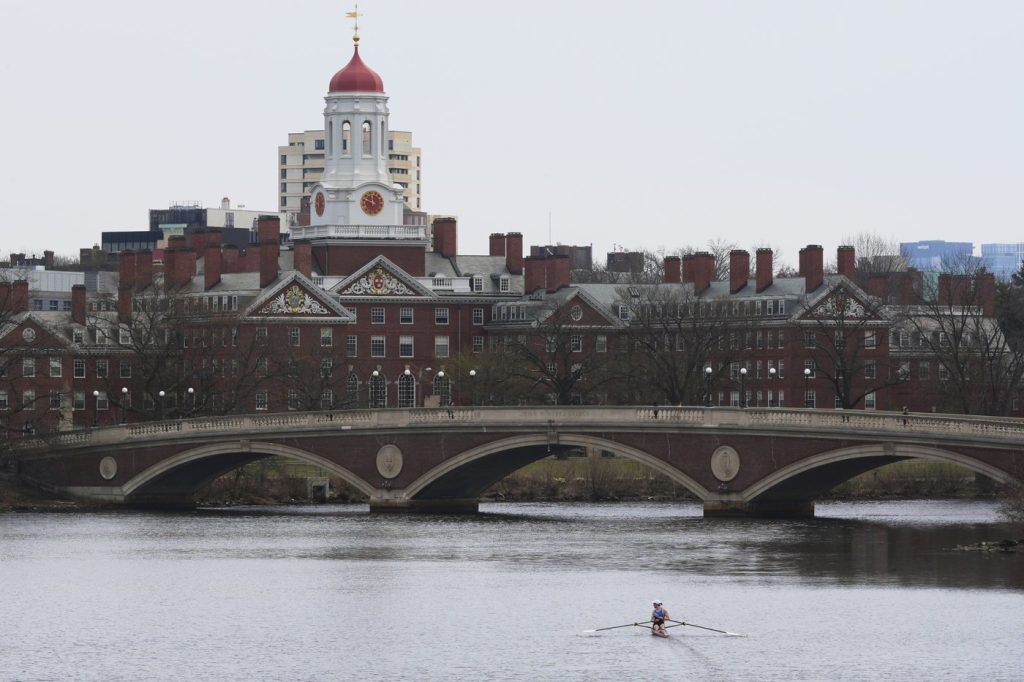CAMBRIDGE, Mass. (AP) — Harvard University is experiencing a critical moment as it celebrates its commencement on Thursday. The institution's status as one of the leading higher education entities globally is increasingly challenged by the Trump administration's policies, leading to what many perceive as existential threats against it.
While other universities may risk losing federal funding and their capacity to enroll international students in the face of evolving demands from the Trump administration, Harvard—founded in 1636, well before the establishment of the United States—is at the forefront of opposing the White House's actions in federal court, even as it faces significant repercussions. The administration has recently requested federal agencies to cancel contracts worth approximately $100 million with Harvard, alongside canceling over $2.6 billion in federal research grants. Additionally, there have been threats concerning the university's tax-exempt status.
International students have encountered serious challenges, including a freezing of visa interviews nationwide, and President Trump has suggested that Harvard reduce its international student population from 25% to around 15%. With its vast $53 billion endowment, Harvard is positioning itself as a stronghold against Trump's efforts aimed at curbing what the administration terms antisemitic activism on campus—a move that Harvard argues undermines academic freedom.
The Trump administration has made numerous demands, including broad governmental and leadership reforms, adjustments in Harvard's admissions policies, a review of diversity viewpoints on campus, and the cessation of support for certain student organizations. In response to these challenges, Harvard has initiated legal action to contest the funding cuts and recently succeeded in obtaining a temporary halt to the international enrollment ban from a federal judge.
During this year’s commencement, Dr. Abraham Verghese, a noted author and Stanford professor, serves as the principal speaker. Concurrently, NBA Hall of Famer Kareem Abdul-Jabbar and journalist Christiane Amanpour addressed other graduating classes, both notably praising Harvard for its stance against the Trump administration. Abdul-Jabbar specifically commended Harvard President Alan Garber's resolute defense of the university's integrity and academic freedom amid undue pressure.
Abdul-Jabbar remarked on the importance of Harvard's stand, likening Garber's actions to those of civil rights icon Rosa Parks. He emphasized that in an era where many, including billionaires and various institutions, have succumbed to pressure, it is refreshing to witness a prestigious university like Harvard uphold the principles of freedom and resist governmental overreach.
Harvard's commitment to legal recourse stems from concerns about the government's encroachment on scientific and medical research. President Garber asserted the necessity of defending the institution against unwarranted attacks while also acknowledging the validity of some criticisms, urging the need for a nuanced dialogue on the underlying concerns that accompany them.
The Trump administration claims its actions aim to protect American students and faculty from antisemitic violence, highlighting campus protests against Israel. Each year, students have advocated for divestment from companies linked to Israel's military actions, which have escalated violence in Gaza amidst retaliatory measures against attacks by Hamas. Previous graduations have seen significant protests, including walkouts chanting "Free, free Palestine," and while demonstrations have diminished this year, a silent vigil is planned ahead of Thursday’s ceremony.
Harvard graduate Victor Wallis expressed his indignation regarding the situation in Gaza, condemning Israel's military actions and the humanitarian crises resulting from the ongoing conflict. With a rich historical legacy dating back nearly four centuries, Harvard's current struggles underscore the institution's pivotal role in academic and social discourse at a time when political pressures threaten to inhibit freedom of expression within academic spheres.











